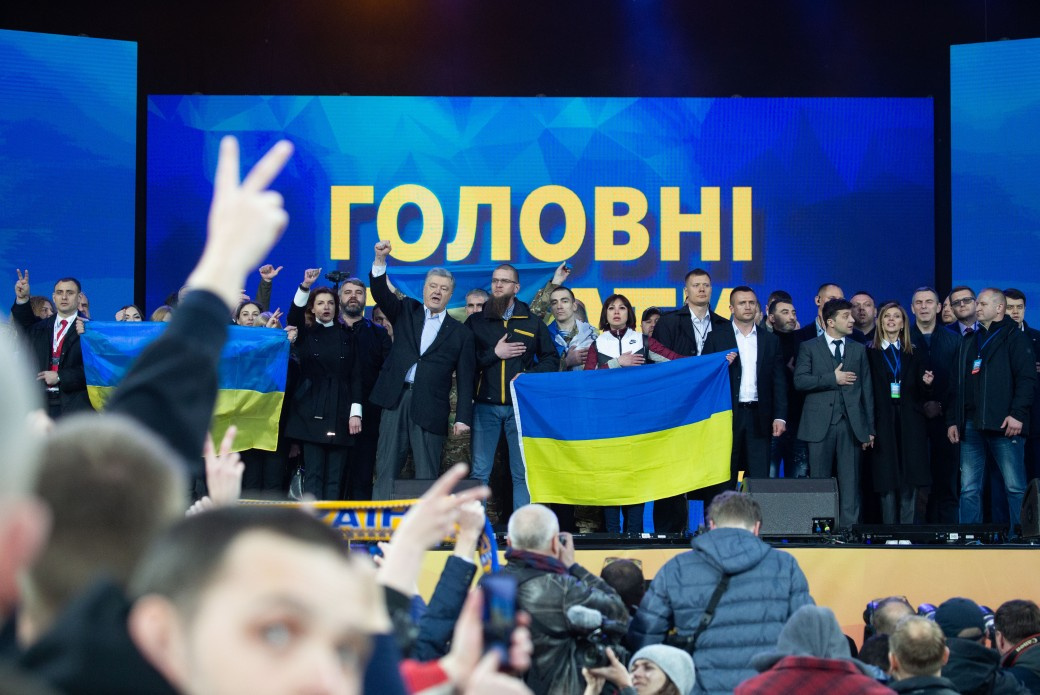16,335. That’s the number of amendments proposed in an unsuccessful effort to hold up banking reform legislation in Ukraine, necessary to secure a loan from the IMF. Behind the amendment sludge, critics say, was Igor Kolomoisky, a Ukrainian oligarch and ex-banker. This week, the parliament in Kyiv circumvented the amendments to pass legislation for the IMF loan. Another number — 13 — represents the tally of criminal inquiries the State Bureau of Investigations (DBR) has opened against ex-president (and oligarch) Petro Poroshenko. This week the DBR summoned Poroshenko for questioning and named him as a criminal suspect. Poroshenko’s attorney tore into the agency, arguing the move was rife with procedural errors.
The two numbers reflect one of largest threats to reform in Ukraine. Big personalities, mostly former oligarchs or well-placed politicians, or both, work tirelessly to protect their own interests. This holds back or distorts reform. Ukraine’s oligarchs are unique. In Russia they are under the Kremlin’s thumb. Other countries in the region typically feature just one super-rich personality with political interests: Georgia’s Bidzina Ivanishvili, whose net worth is $4.5 billion, and Moldova’s Vladimir Plahotniuc, the “richest man in the poorest country in Europe.” Only Ukraine has a large number of billionaire oligarchs using cash to compete for political influence. For their part, politicians court oligarchs while attempting — or purporting — to remain independent.
Volodymyr Zelenskiy, himself a showbiz personality, was supposed to be different. He overcame a career marked by cooperation with Kolomoisky and even evaded complaints from the opposition that Kolomoisky backed and bankrolled his candidacy. A year ago, Zelenskiy won the presidency on a platform of anti-corruption pledges, settling the conflict in eastern Ukraine, and structural reform. The verdict on his first year in office is mixed. While 37% of Ukrainians call his first year “satisfactory,” 51% believe the country is not moving in the right direction. He received the lowest ratings for his ability to decrease the oligarchs’ influence in politics, curb corruption, and develop the economy.
In the last few weeks, his government has taken two steps forward and a gigantic step backward. Parliament was able to pass banking reform to secure nearly $5 billion from the IMF, with immediate access to $2.1 billion. Though further conditions for IMF funding will be challenging to meet, this legislation included working against oligarchic interests, preventing Kolomoisky from ever accessing his nationalized PrivatBank again. This victory comes at the right time. The economy has been hit hard by the covid-induced economic setback, with GDP likely to drop 4.8% this year and public finances under strain.
But the system of power has not changed. In particular, the criminal investigations against Poroshenko have prompted alarm. The European Parliament delegation to the EU-Ukraine Parliamentary Association Committee released a statement on June 12 expressing concern. Signs of politicization abound. The alleged offenses range from the seemingly trivial (taking off a woman’s hat) to the questionable (an illegal transfer of paintings) and the murky (issuing an illegal order to Yegor Bozhok, head of the Foreign Intelligence Service). The DBR published a video smearing the ex-president and claiming he has evaded more than 25 summonses. Poroshenko says the charges are politically motivated. Cynics might argue that one set of oligarchs is settling scores with a defeated rival.
Regardless of their merits, the investigations also risk treading into the partisan minefield of U.S. domestic politics. In May, tapes were leaked by a Ukrainian lawmaker, Andrii Derkach. The recordings purportedly show Poroshenko and the then-Vice President Joe Biden discussing conditions for a $1 billion loan. Any mention of the “B-word” risks attracting attention in Washington and prompting renewed entanglement in American politics, from which Ukraine can only lose.
Prosecutors will have to tread carefully to avoid an American imbroglio, while also avoiding the trap of pursuing politically-motivated claims against the opposition. Ukraine’s rulers must juggle their international supporters’ priorities and political necessities at home. The latest turn of events has thrown another ball in the air.
Europe’s Edge is CEPA’s online journal covering critical topics on the foreign policy docket across Europe and North America. All opinions are those of the author and do not necessarily represent the position or views of the institutions they represent or the Center for European Policy Analysis.





